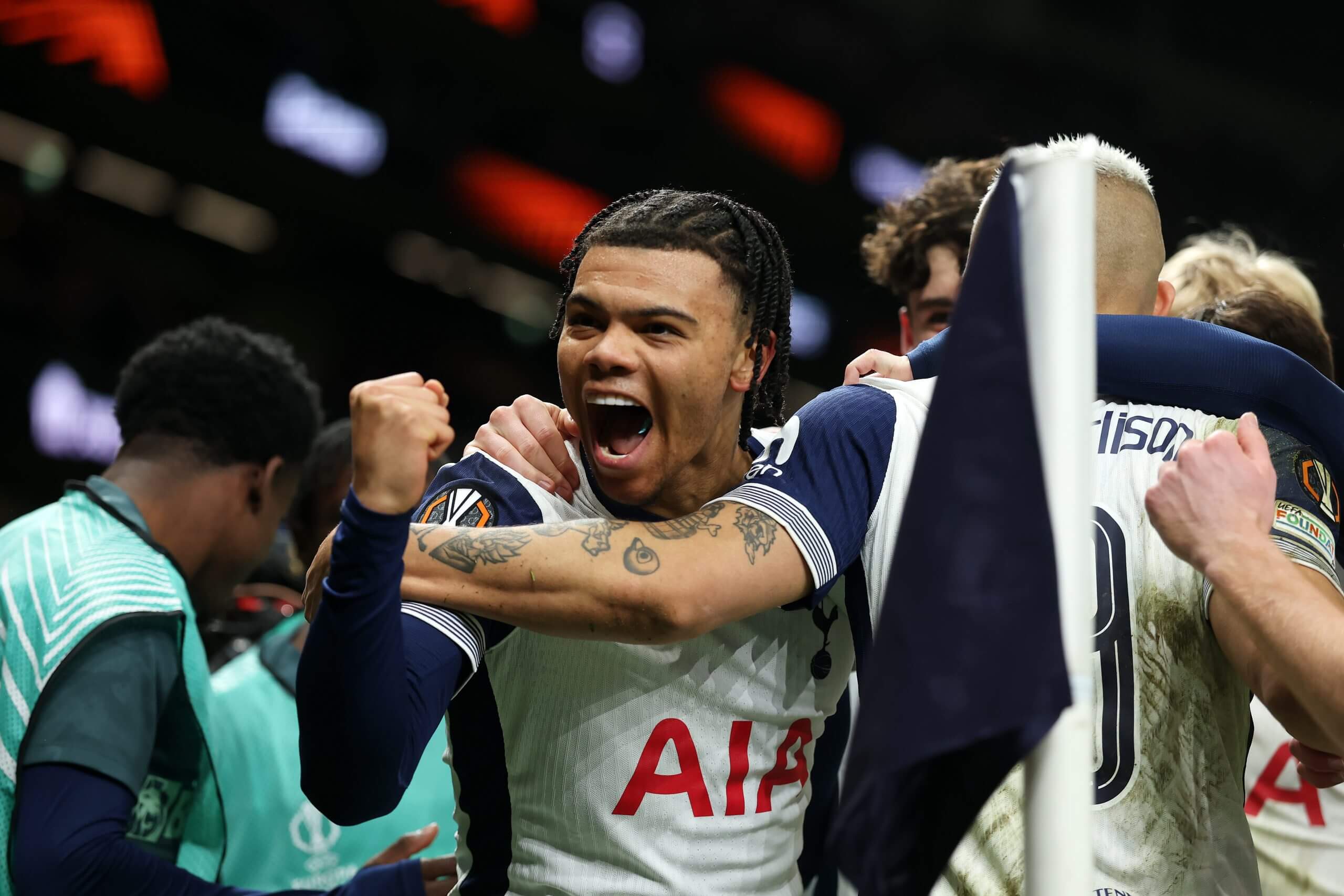
The premise of hit TV series Severance is that a corporation can insert a chip into employees’ brains which means that when they step into the workplace, they instantly forget everything that they knew in the outside world.
Over the course of the show, it becomes clear that you are not merely ‘severed’ from your memories by this process, but from your original self. You become an entirely different person with a different personality. Your ‘outtie’ in the real world and your ‘innie’ in the office may have very little in common. Other than that, they share the same physical body.
Advertisement
The question, as we approach the quarter-finals of the Europa League this week, is whether the same thing can be true for Tottenham Hotspur. Is it possible for one team to be so bad in the Premier League but to step into the Europa League and suddenly become a completely different side? Can a fanbase forget everything they knew about the season so far and come into this week with the optimism of not knowing?
And is there any reason, outside of the world of science fiction, to be hopeful about Eintracht Frankfurt over two legs?
Thursday night could be the biggest game of Spurs’ season, and arguably their biggest game of this decade. The only trophy they have come close to in recent years is the Carabao Cup, reaching the 2021 final and twice losing a semi-final since then. But they have done nothing in the FA Cup of late and nothing in Europe since the 2019 Champions League final.
This campaign is a chance to change that. If they can just get past Frankfurt, their season will at the least be kept alive into May. It will be Lazio or Bodo/Glimt in the semis. They will be so close to the final in Bilbao they will be able to smell the pintxos.

(Richard Pelham/Getty Images)
Under normal circumstances, you might expect a sense of feverish anticipation heading into Thursday. But this has not been a normal Tottenham season. In fact, it has been their worst league season for decades. With seven games left, they are 14th in the league table. The last time they finished lower than that was 1993-94. They have lost 16 from 31 league games.
The last time they lost more than half of their league game was 1934-35, when they finished bottom, were relegated, and did not return to the top flight until 1950. Daniel Levy was being gentle last week when he called this season “highly challenging”.
So if Spurs show up on Thursday and simply play like they have done in the Premier League, it is difficult to imagine how they might be able to beat Frankfurt. Dino Toppmoller’s team are currently third in the Bundesliga and well on course for Champions League qualification for next season. They are an efficient counter-attacking side, perfectly calibrated to take advantage of the flaws in Tottenham’s game.
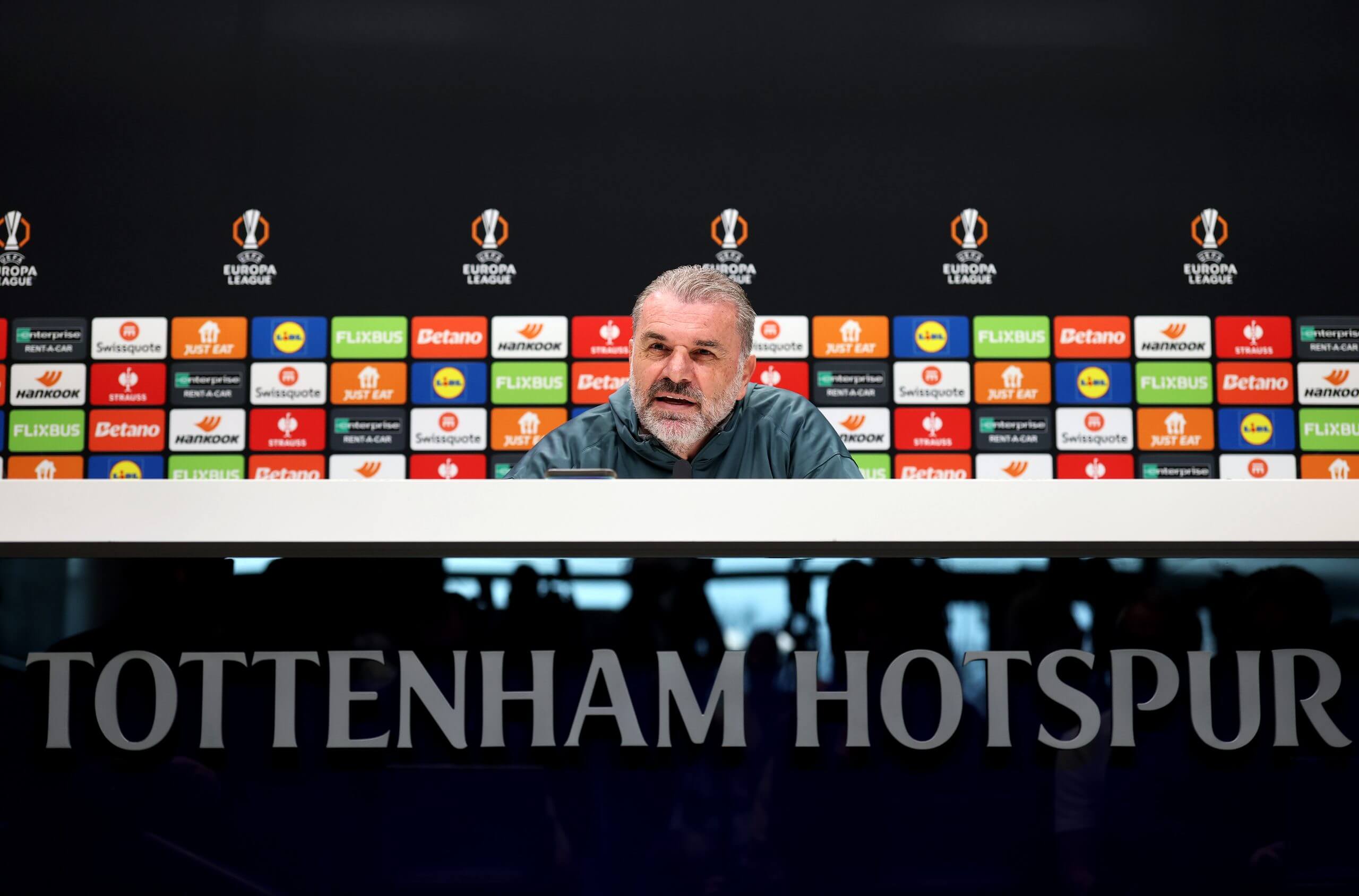
Can the Europa League save Tottenham’s – and Ange Postecoglou’s – season? (Richard Pelham/Getty Images)
If you have watched Spurs in recent months, you will be familiar with those issues. They struggle to control and manage the game. They give the ball away cheaply when they have too many players committed upfield. The midfield offers little resistance to opposition counter-attacks. They lack cohesion without the ball and confidence with it.
Advertisement
Of course, most of these problems are downstream from the brutal injury crisis they suffered, and the issues it exposed with the squad. But they were glaringly evident in the recent league defeats by Chelsea, Fulham and Manchester City, and in the first hour against Bournemouth. The only league games Spurs have won in the last two months were against Southampton, Ipswich Town and Manchester United. Even the performance level they showed against the now relegated Southampton on Sunday will not be enough against Frankfurt.
But what if the Spurs team that emerged out of the tunnel on Thursday night was somehow transformed from the one that we have seen recently? What if the same physical bodies can somehow become a different team?
This is not an unprecedented phenomenon in European football. There are plenty of examples of teams who were unremarkable in domestic competition, but who became something else when they stepped out to play in Europe.
Like Liverpool winning the 2005 Champions League despite finishing fifth in the Premier League, separated from Bolton Wanderers by only goal difference. Or Roberto Di Matteo’s Chelsea, sixth in the Premier League in 2011-12 but unrecognisable in Europe, knocking out Pep Guardiola’s Barcelona in the semis and then beating Jupp Heynckes’ Bayern Munich in the final at the Allianz Arena itself.
There is another example even closer to home. By the halfway point of the 2018-19 season, it was clear that Mauricio Pochettino’s Tottenham cycle was nearing its end. After failing to move on established players or bring in anyone new in summer 2018, the team had gone stale. They could not summon the old energy. They did not win an away league game after January.
But when the Champions League anthem played, Spurs were separated from their domestic selves and now capable of remarkable feats. They nicked a point in the Nou Camp to qualify from the group, they demolished Borussia Dortmund, they beat a peak-era Manchester City on away goals and then they produced one of the greatest comebacks in history to beat Ajax. And they had to play the second leg against City and both legs against Ajax without Harry Kane. They needed big contributions from Fernando Llorente, Moussa Sissoko and a hobbling Victor Wanyama to get them to Madrid.
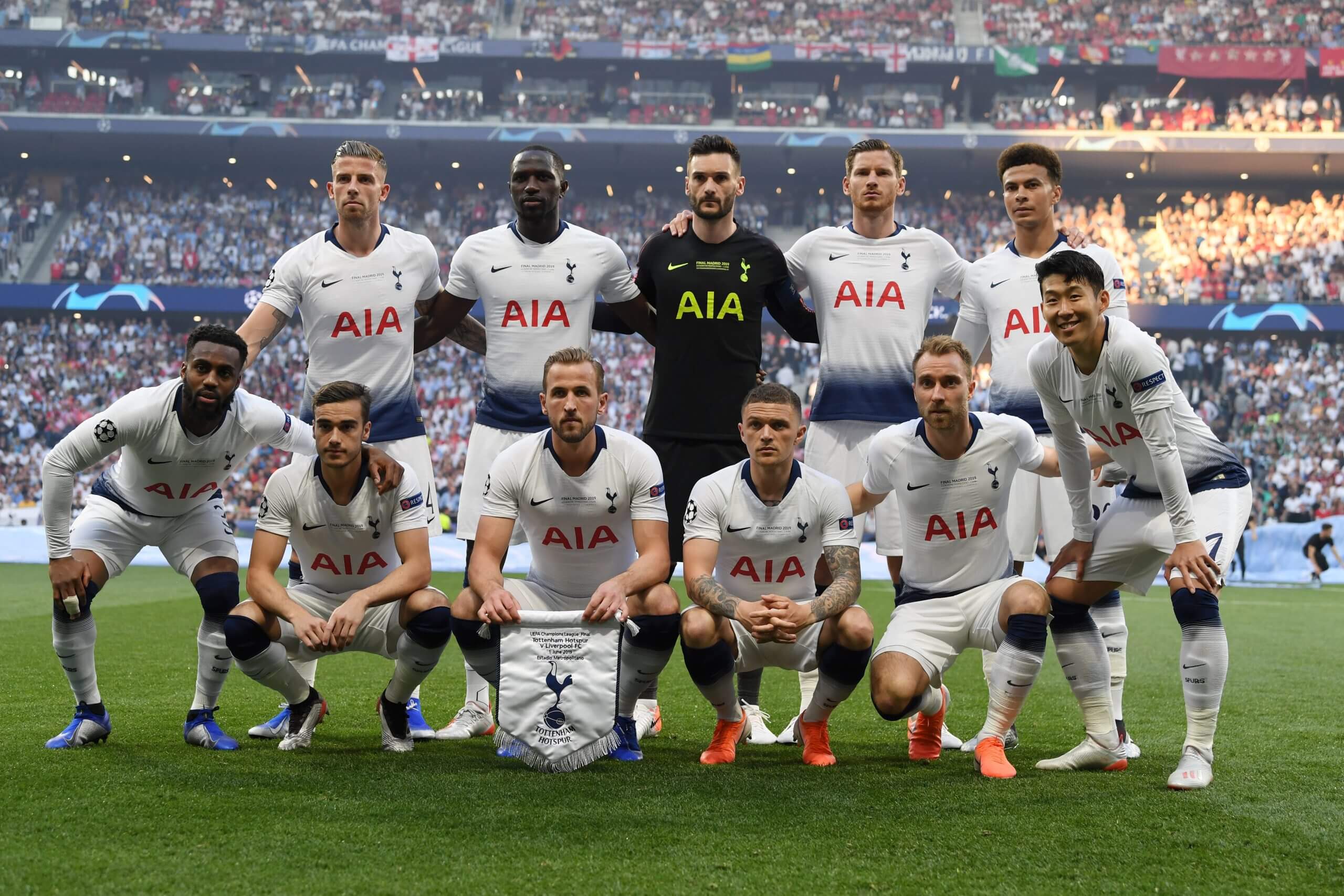
(Matthias Hangst/Getty Images)
It was all so thrillingly unlikely that you might as well ascribe it to science fiction, the tiring domestic team turning into the heroic European side who never knew when they were beaten.
And if the Tottenham team of six years ago could become different on European nights, then why can’t this one? All season, this group has been consistent in its desperation to make history and win a trophy for Spurs. They have saved most of their best performances for the cups, forgetting their miserable league form, knocking both Manchester teams out of the Carabao Cup, and beating Liverpool in the first leg of the semi-final. They finished an impressive fourth out of 36 in the Europa League league phase.
Advertisement
And while Spurs were indeed awful in the last-16 first leg against AZ, the only time in recent months they have played anything even remotely resembling ‘Angeball’ was the second leg. With their season on the line, they found the physical level to power past AZ and into the quarters.
On Thursday, Spurs have to do the same thing again: step out of the tunnel, wait for the Europa League anthem to play and become a different team. The side we see most weeks in the Premier League barely has a chance against Eintracht Frankfurt. But if Tottenham can sever themselves from that losing side, leave those bad memories and bad habits behind, and become something else, then maybe that version can finish this season well after all.
(Top photo: Justin Setterfield/Getty Images)
This news was originally published on this post .






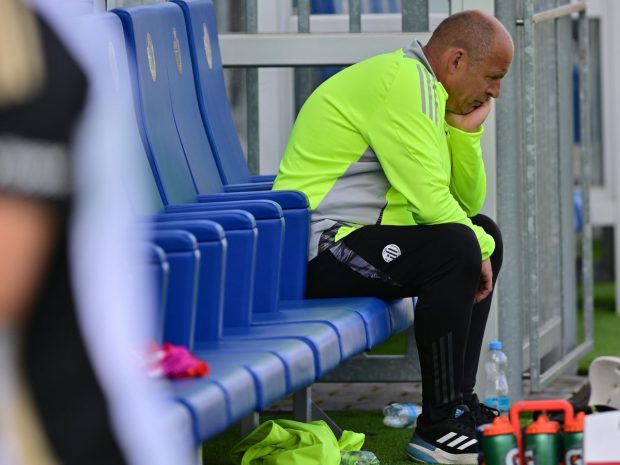

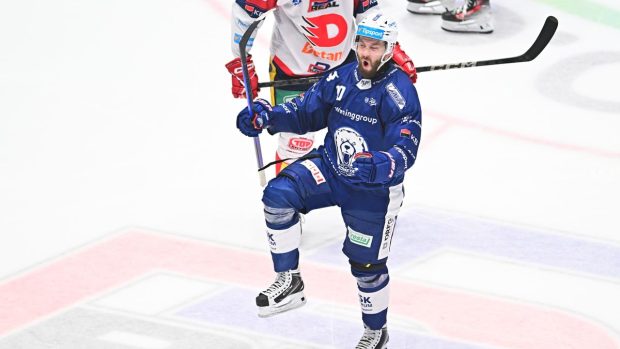

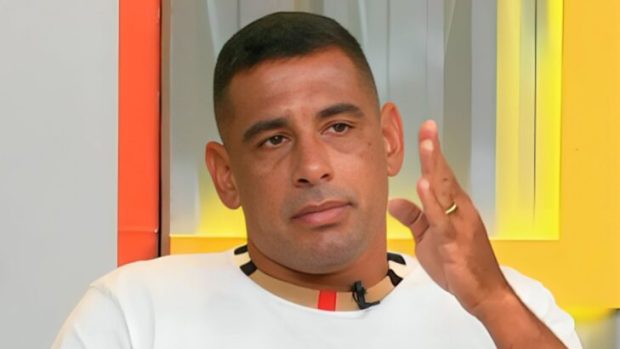
Be the first to leave a comment